QuestionDear Nori,
I have a 125 gal. aquarium. My lighting is about 3 watts per gallon and the tank is heavily planted. I have CO2 injection. I'm getting somewhat of a yellowish stain on my gravel/substrate, mostly in the front. There grows a yellowish "thread algae". It is easily removed with a toothbrush, as it tends to grow in clumps. This is becoming a daily routine. My lights are programmed for 10 hours per day. My water has hardly any phosphate and my Ph is a constant 7.2. I have 2 large Aqua Clear (110) filters which run continously. It may be helpful for you to know that my tank is still going through it's Nitrogen Cycle; the ammonia is gone, but the nitrite is (still) high. I belive the Cycle will be completed in about another 1-2 weeks. However, in the meantime, this yellowish thread algae, which is slowing-down a bit, is becoming a nuisance. Any ideas as to what might be causing this problem?
Regards,
Dave M.
AnswerHi Dave,
Thank you for your letter. So no fish yet, no fish food? Usually, people over feed and that causes problems like you describe.
My advice for plants is to remove any that start to decay. They are mostly ornamental, they usually don't "grow" like a plant you put in your yard. If any start to turn, pull them out immediately.
For more about feeding, please read and print out this page:
http://steamboats.com/aquarium.html
Barring any fish food or rotting plants, my diagnosis is that you are giving it too many hours of light, and perhaps too many watts.
If you have natural light in the room you may not need a light at all, except maybe when you have people over and want to show off your tank.
If it is a dark room, you only need the light for about 5 - 6 hours.
Do not place a tank in direct sunlight.
Another problem might be lack of friendly bacteria culture. Use a product such as "Cycle" to build up organic biology. Bacteria culture will help break down any organic waste matter.
Write back if you want to discuss further.

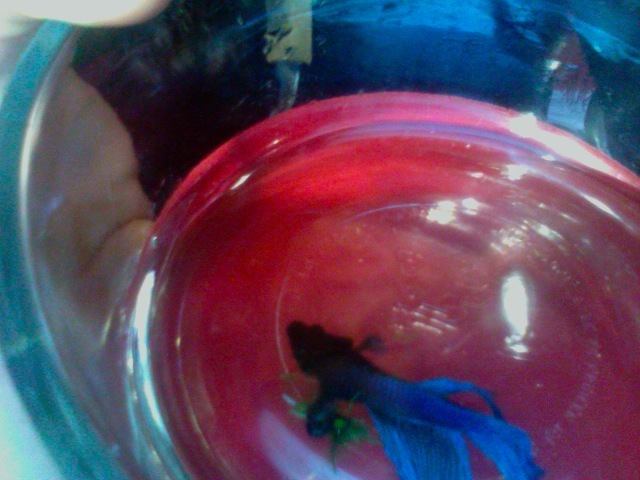 Betta fins tangles in hair algae
Question
betta with tangled ven
I came home today to fi
Betta fins tangles in hair algae
Question
betta with tangled ven
I came home today to fi
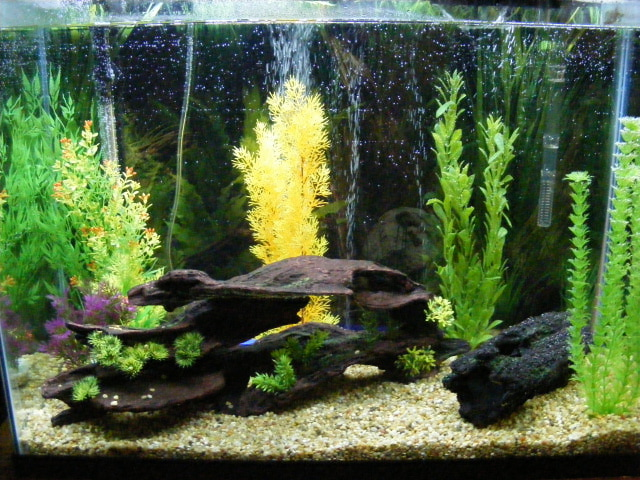 bubbles
Question
bubbles bubbles 2
Hello Richard,
bubbles
Question
bubbles bubbles 2
Hello Richard,
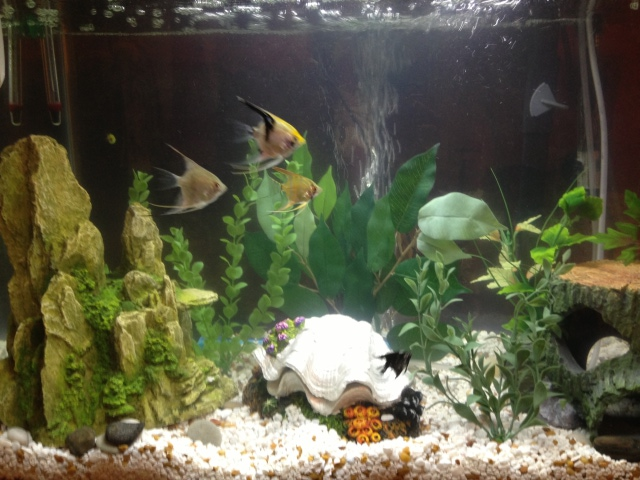 PLEASE HELP! Trouble in both my tanks!
QuestionMy angelfish tank
Bruise under coy angel
PLEASE HELP! Trouble in both my tanks!
QuestionMy angelfish tank
Bruise under coy angel
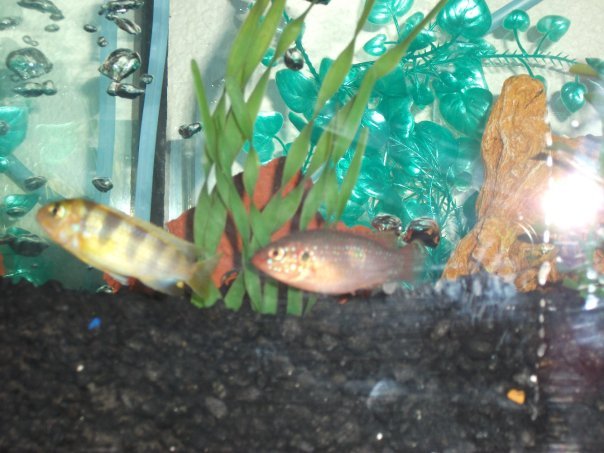 Identifying a fish
Question
Unknown cichlid
Richard, I have searched and s
Identifying a fish
Question
Unknown cichlid
Richard, I have searched and s
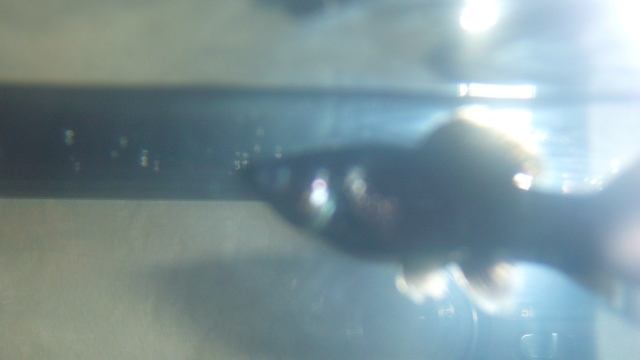 sick mollie
Question
sick mollie
I have a black mollie that is moth
sick mollie
Question
sick mollie
I have a black mollie that is moth